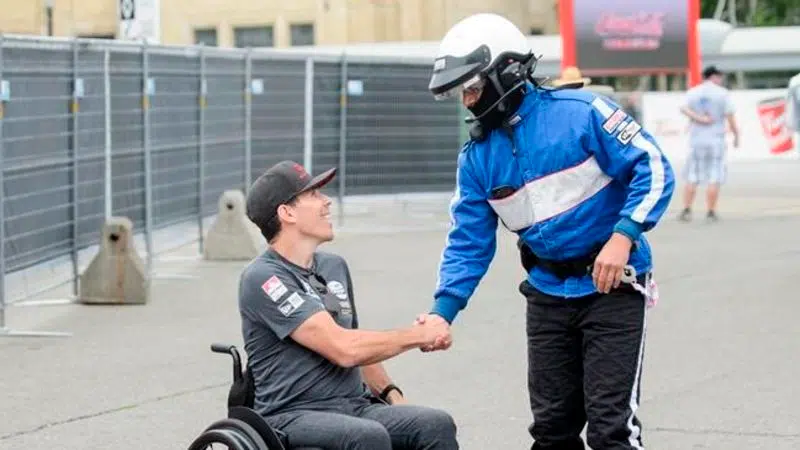
Canada’s Wickens hopes to race again; will lead warmup lap of Toronto Indy
TORONTO — Almost a year after a horrific crash left Robert Wickens a paraplegic, it took just a few seconds earlier this week for the Canadian to feel the exhilarating rush of a steering wheel in his hands.
The 30-year-old from Guelph, Ont., will lead the warm-up lap for Sunday’s Honda Indy Toronto in an Acura NSX that’s been modified with hand controls. His fiancee Karli Woods will be in the passenger seat. It’s sure to be an emotional moment.
“I was able to get a couple of practice laps in (Thursday) and it put a huge smile on my face . . . Racing is my dream, it’s my passion, it’s all I want to do,” Wickens said.
It was his first time behind the wheel since his Aug. 19 crash.


